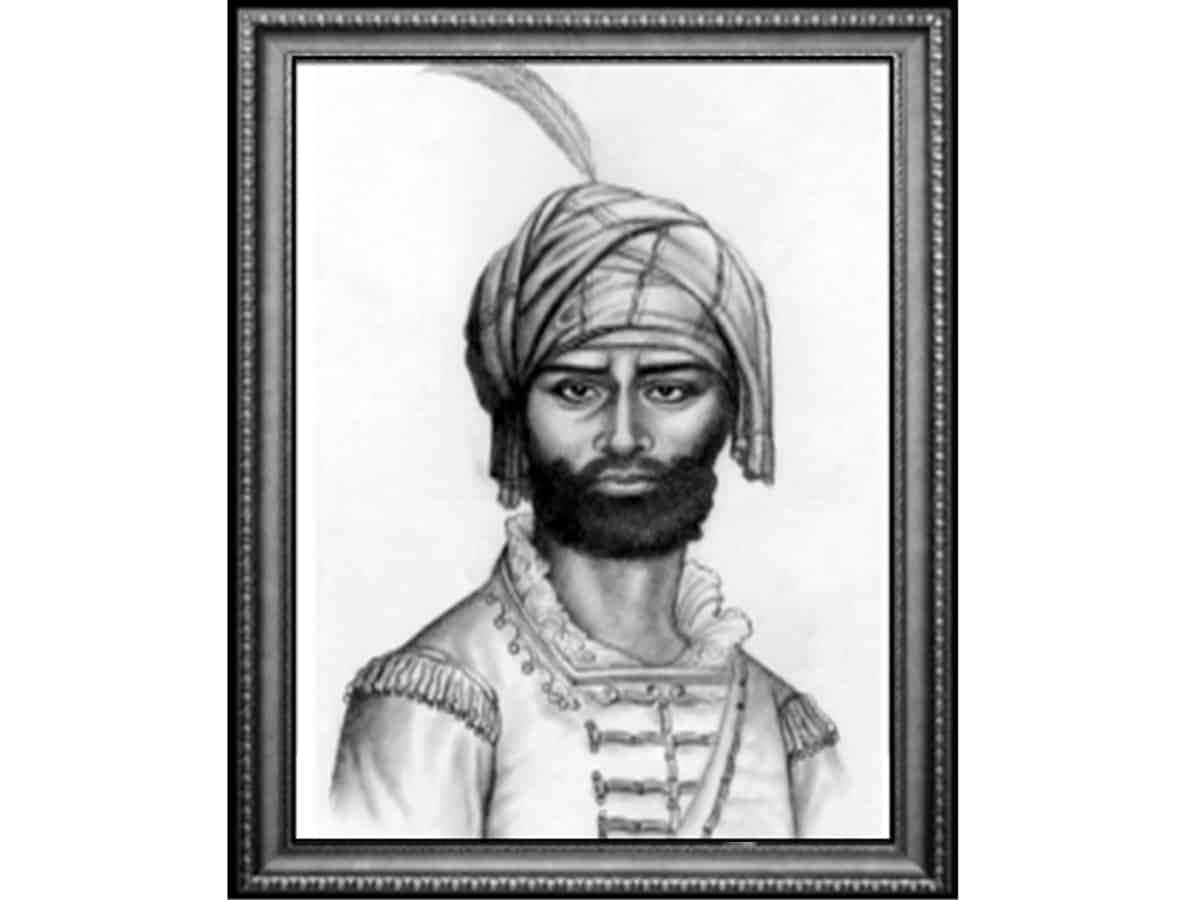Hyder Ali, who is famously known as ‘the Napoleon of South India’ for his relentless fighting against the conspiracies of the East India Company and its henchmen and for checkmating the British ambitions of expansion in South India, was born in 1722 at Devanahalli village, Karnataka state.
His father was Fateh Mohammad Ali and mother Mujidan Begum. Though he did not have any formal learning, he received training in martial arts.
Hyder Ali was sharp in intellect, strong in will, capable of handling multiple tasks simultaneously and was brave at heart. He had participated in the Devanahalli war in 1749 as a young soldier of Mysore State.
Recognizing his gallantry, Nanjaraj, the Minister of Mysore kingdom, honoured Hyder Ali with the title of ‘Khan’ and promoted him as the Chief of a battalion in the Mysore army.
Hyder Ali gradually rose to become the Commander-in-Chief of the Mysore Army in 1758. Later, he became the ruler of Mysore. Hyder Ali was secular in outlook. He treated all religions equally. Marathas and the Nizam of Hyderabad grew jealous of Hyder’s success and of his reputation among the people.
They attacked Mysore several times with the help of the East India Company. Though Hyder Ali suffered initial losses, he resisted them successfully and proved a virtual nightmare to East India Company.
Even then, the British rulers provoked Hyder Ali again which led to the second Mysore war in July 1780. He went to the battlefield along with his son, Tipu Sultan. While Hyder Ali captured the Arcot, his son Tipu defeated the East India Company troops and captured Kanjeevaram, which was about 50 miles from Madras.
This sent shivers to Warren Hastings, the Governor-General of East India Company. He immediately sent additional troops from Culcutta, Madras with abundant funds under the control of his Commander General, Sir Eyre Coote.
While fighting against the foreign enemy on one side, Hyder Ali and Tipu Sultan taught a befitting lesson to Malabar Nayars and chieftains, who revolted against him with the active support of Nizam of Hyderabad.
Hyder Ali, while leading his troops towards successive victories, fell ill and died on the battlefield on 7 December, 1782, near Narasingarayuni Peta village, which is now in Chitoor district of Andhra Pradesh.
The article is part of a book titled ‘The Immortals’, written by the author.
Syed Naseer Ahamad is a Telegu writer and journalist who has written several books on the role of Muslims in the struggle for the freedom of India. Many of his books have been translated into other languages. He can be contacted at naseerahamedsyed@gmail.com

